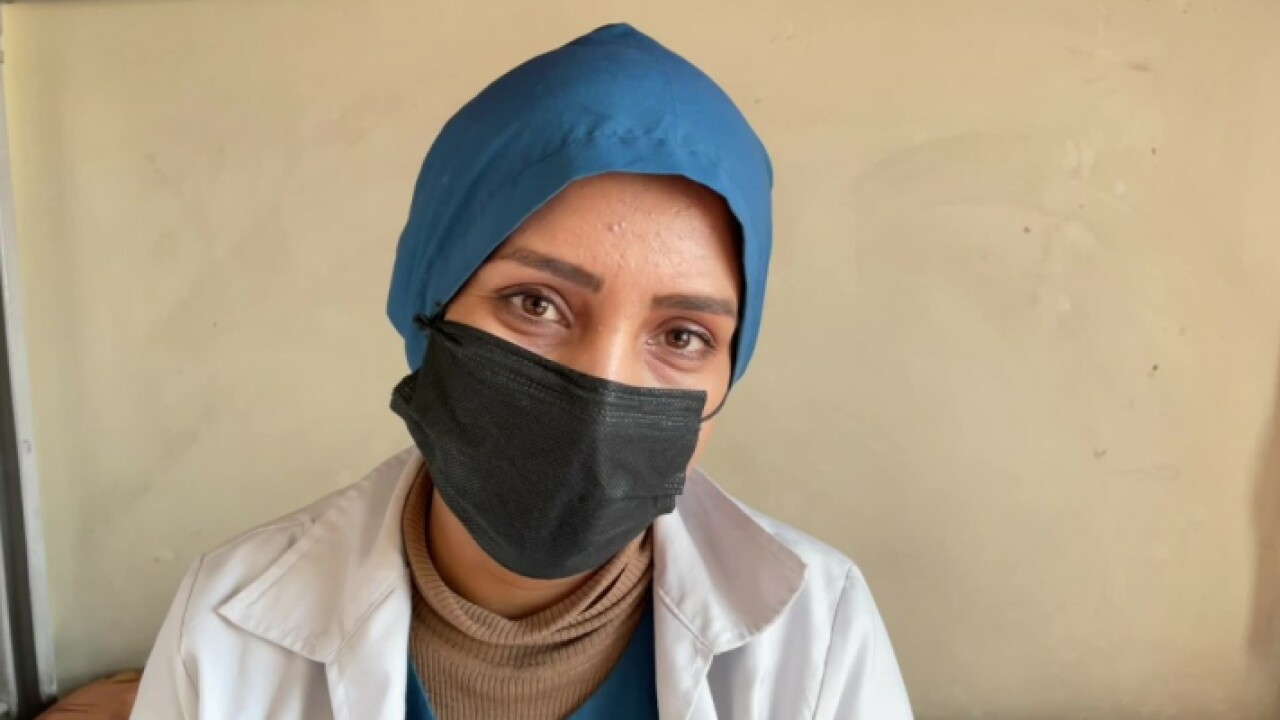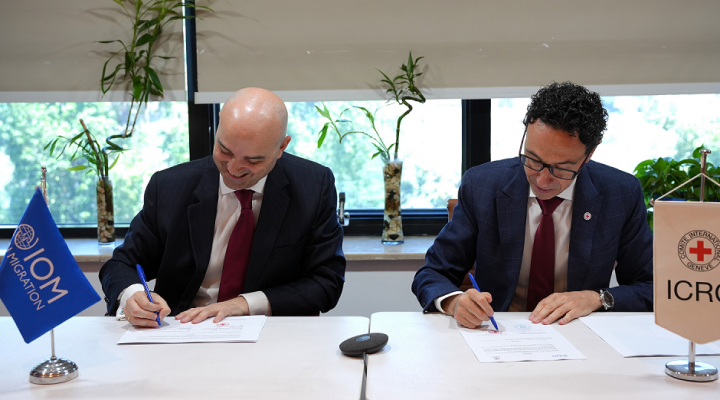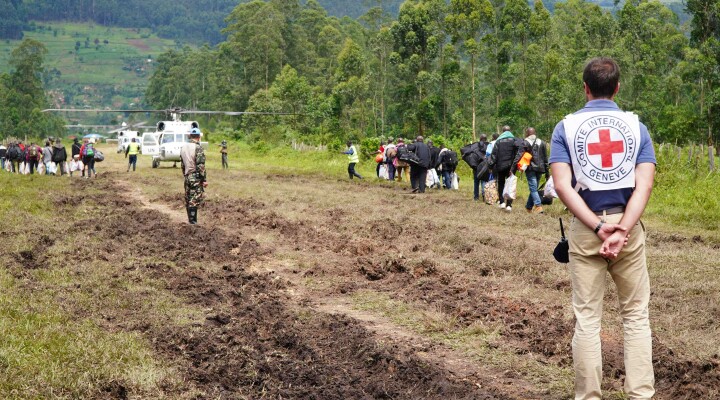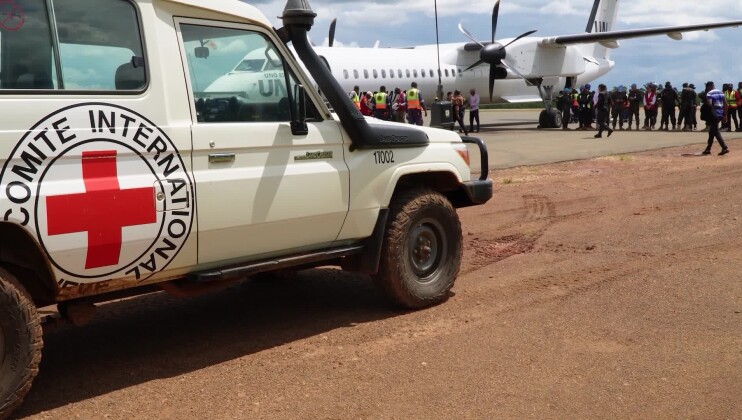Afghanistan: Time is running out to save millions of lives

This is a modal window.
The international community must step up urgently to stop Afghanistan’s rapid slide towards total collapse and all-out humanitarian disaster, warned international Red Cross leaders on a five-day visit to the country.
Six months after the Islamic Emirate of Afghanistan took control, resulting in international sanctions and the freezing of aid, the continuing reluctance of many international donors to engage with the current leadership is worsening the desperate plight of millions of Afghans already worn down by more than four decades of conflict, repeated droughts and the COVID-19 pandemic.
Healthcare services are among those in most urgent need of support. Thousands of health facilities have closed or are not functioning anymore, and most people can’t afford treatment in private clinics or to travel to neighbouring countries. The banking and liquidity crisis is having a direct and huge impact on the health system. Many salaries have not been paid and generators lack fuel. Ambulances can’t run, there isn’t food for patients, and they lack adequate medicine.
“I leave my children at home with my husband and I come here to do my best for the patients that are coming here. I’m a strong woman because I’m fighting with lots of challenges in Afghanistan but from the beginning I didn’t want to leave my country,” says gynaecologist and mother of three, Dr Jagona Faizli.
“I wanted to stay here but because of these problems every day now I don’t know. If the situation goes wrong, I will have to leave my country, but it will make me very disappointed. Let’s see what will happen.”
Dedicated and courageous female and male health staff do their best to save lives every day, but without a functioning health system, their job is often akin to putting plasters on festering wounds.
“The workload is too much. We have too many newborn children. It would be good if we have few more doctors,” said Dr Ghazanfar Shaharbanu, head of neonatal ward at Kabul's Malalai Hospital. “Malalai Hospital is a big hospital and people come here from all suburbs of Kabul. Most cases have complications.”
Through the Hospital Resilience Project, the International Committee of the Red Cross is supporting 28 hospitals across the country, including directly paying the salaries of around 10,000 health professionals. This support ensures access to healthcare for up to 20 million people.
For further information, please contact:
Anita Dullard, ICRC Bangkok, Tel: +66 6595 62064, or adullard@icrc.org
Established in 1863, the ICRC operates worldwide helping people affected by conflict and armed violence and promoting the laws that protect victims of war. A neutral, independent and impartial organization, its mandate stems from the Geneva Conventions of 1949.
SHOTLIST
Copyright: ICRC access all
On Screen Credit: ICRC logo (available on icrcnewsroom.org next to Broll download button)
Photos: Dates and location in file name
Video 1
Location: Rabia Balkhi Hospital, Kabul and Dr Mariam’s home in Kabul
Camera: Stefanie Glinsky
Date: 24.01.22
0:00 SOUNDBITE Dr Jagona Faizli, Gynaecologist, Rabia Balkhi Hospital (in English):
“Hello my name is Jagona Faizli. I am a gynaecologist. I’m the mother of three beautiful daughters. I’m a strong woman because I leave my children at home with my husband and I come here to do my best for the patients that are coming here. I’m a strong woman because I’m fighting with lots of challenges in Afghanistan when I come out of my home when I come to the hospital, I come across lots of challenges but at the beginning I didn’t want to leave my country. I wanted to stay here but because of these problems which are coming across every day now I don’t know, if the situation goes wrong and wrong, I will have to leave my country, but it will make me very disappointed. Let’s see what will happen. I’m happy because I’m very strong.”
1:02 Patient with her newborn baby boy; prematurely delivered at 7 months, but healthy. Here, she sits with midwife Mariam Mohammedi, 22, who is going through a list of check-ups the newborn needs before being discharged.
1:33 Father with his firstborn baby
Location: Malalai Maternity Hospital, Kabul
Camera: Stefanie Glinsky
Date: 25.01.2022
2:11 SOUNBITE Dr Ghazanfar Shaharbanu, head of neonatal ward , Malalai Hospital, Kabul (in Dari)
2:11 “Generally, these doctors are operating in our ward.
2:16 As workload is too much, we have too many newborn children and births.
2:23 We would be very happy if we have few more doctors
2:28 because doctors have a night shift duty every 5 nights,
2:32 for example a specialist doctor who has worked for 30 years has to do a night shift duty too.
2:37 If we have 2 more doctors, it will facilitate our work.
2:43 Generally, Malalai Hospital is a big hospital and people come here from all suburbs of Kabul.
2:52 Most cases have complications.
2:55 As mothers have complications, children also have some problems.
3:01 GVs of Dr Shaharbanu at work on the neonatal ward
Location: Kabul
Camera: Mohammad Masoud Samimi
Date: 01/01/2022
8:15 GVs of Kabul
Location: Jamourait Hospital, Kabul
Camera: Mohammad Masoud Samimi?
Date: 13/12/2021
8:47 Various of hospital damage
10:32 End
Video 2
Location: Mirwais Regional Hospital, Kandahar
Camera: Mohammad Masoud Samimi
Date: 23/02/2022
International Committee of the Red Cross director-general Robert Mardini in Afghanistan visiting health care facilities, staff, patients and their families impacted by the economic crisis. He is joined by Kristiina Kumpula, Secretary-General of the Finnish Red Cross and Anders Ladekarl, Secretary-General of the Danish Red Cross.
0:00 Various of Red Cross and Red Crescent colleagues in Kandahar
1:46 SOUNDBITE Kristiina Kumpula, Secretary-General of the Finnish Red Cross,
“I’m Kristina Kumpula from the Finnish Red Cross visiting the Mirwais regional hospital in Kandahar. This demonstrates to me how important the Red Cross work is to support people and the health services as it is in this hospital serving 6 million people of Kandahar. I am privileged and impressed to see the commitment of people working in the hospital in very difficult times and they are putting all their energy and professionalism to help people. This also gives me the strong feeling that our commitment to support the afghan people to preserve and develop their health services. This is crucial for the development of this nation.”
2:38 SOUNDBITE Robert Mardini, Director-General, International Committee of the Red Cross (in English)
“We have been supporting this hospital over the past 26 years so our commitment to support this hospital going forward is unwavering. I was really struck and impressed by the resilience and professionalism of 800 staff working around the clock almost in different corners of this hospital to make a difference, saving lives every day very often with limited resources and difficult working conditions so our commitment is here to stay and our aim is really to maintain the continuity of essential health services in Kandahar for the south of the country and making sure that this hospital is a sustainable facility for the Afghan people.”
3:29 SOUNDBITE Anders Ladekarl, Secretary-General of the Danish Red Cross (in English)
“Before coming to Afghanistan, I knew the situation was very difficult but I’ve been shocked to see how many people are really suffering, shocked to see starving children, three in a bed in a hospital, shocked to see how many people are striving to survive. The people of Afghanistan they need our support and the Red Cross is going to step up. We are going to deliver more assistance, we’re going to help more people in hospitals. But we need and the Afghans need the solidarity of the world. We cannot leave them behind. We owe them to help in this dire situation.



